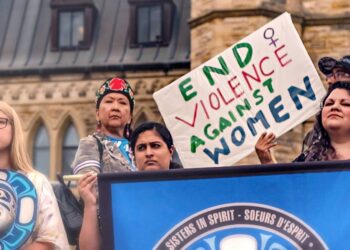Human Lives Human Rights: On a cold winter morning in Washington, D.C., a man named Robert huddles in a sleeping bag outside a federal building. His sign reads, “I served my country, now I sleep on the streets.” A few miles away, politicians approve another multi-billion-dollar defense budget, ensuring America maintains its dominance in global warfare.
The U.S. spends more on its military than the next ten countries combined. In 2023 alone, the defense budget exceeded $800 billion, fueling the development of fighter jets, nuclear submarines, and high-tech weapons. Meanwhile, nearly 600,000 Americans experience homelessness every night, holding cardboard signs that ask for spare change in a nation that boasts prosperity.
The Cost of War vs. The Cost of Living
The disparity is stark. A single F-35 fighter jet costs around $80 million—enough to provide permanent housing for thousands of unhoused individuals. Billions are poured into foreign military aid, yet domestic programs for mental health, affordable housing, and job training remain underfunded.
“It’s infuriating,” says Lisa Thompson, a social worker in Los Angeles. “We have entire tent cities lining our streets, yet we’re constantly told there’s not enough funding to help. But somehow, there’s always money for war.”
A Nation’s Priorities
America prides itself on being the land of opportunity, yet its spending choices paint a different picture. While weapons manufacturers profit from endless military contracts, struggling families face eviction, veterans grapple with PTSD and unemployment, and hospitals struggle with underfunded public health systems.
John, a Vietnam War veteran, speaks candidly about his experience. “I fought for this country, and now I fight just to stay alive. It feels like we’re forgotten.”
Change or More of the Same?
Despite public outcry, military spending continues to rise, while social programs remain stagnant. Advocates call for reallocating even a fraction of the defense budget to address the homelessness crisis, improve education, and provide universal healthcare.
“If we took just 10% of the military budget and invested it in affordable housing,” says economist Dr. Rachel Patel, “we could dramatically reduce homelessness within a decade. But that’s not where the money goes.”
As Robert adjusts his sleeping bag, he looks up at the American flag waving in the wind. “They tell us we live in the greatest country in the world,” he says. “Then why are so many of us left behind?”
Until priorities shift, the cycle continues: billions for war, and pennies for the poor.


















